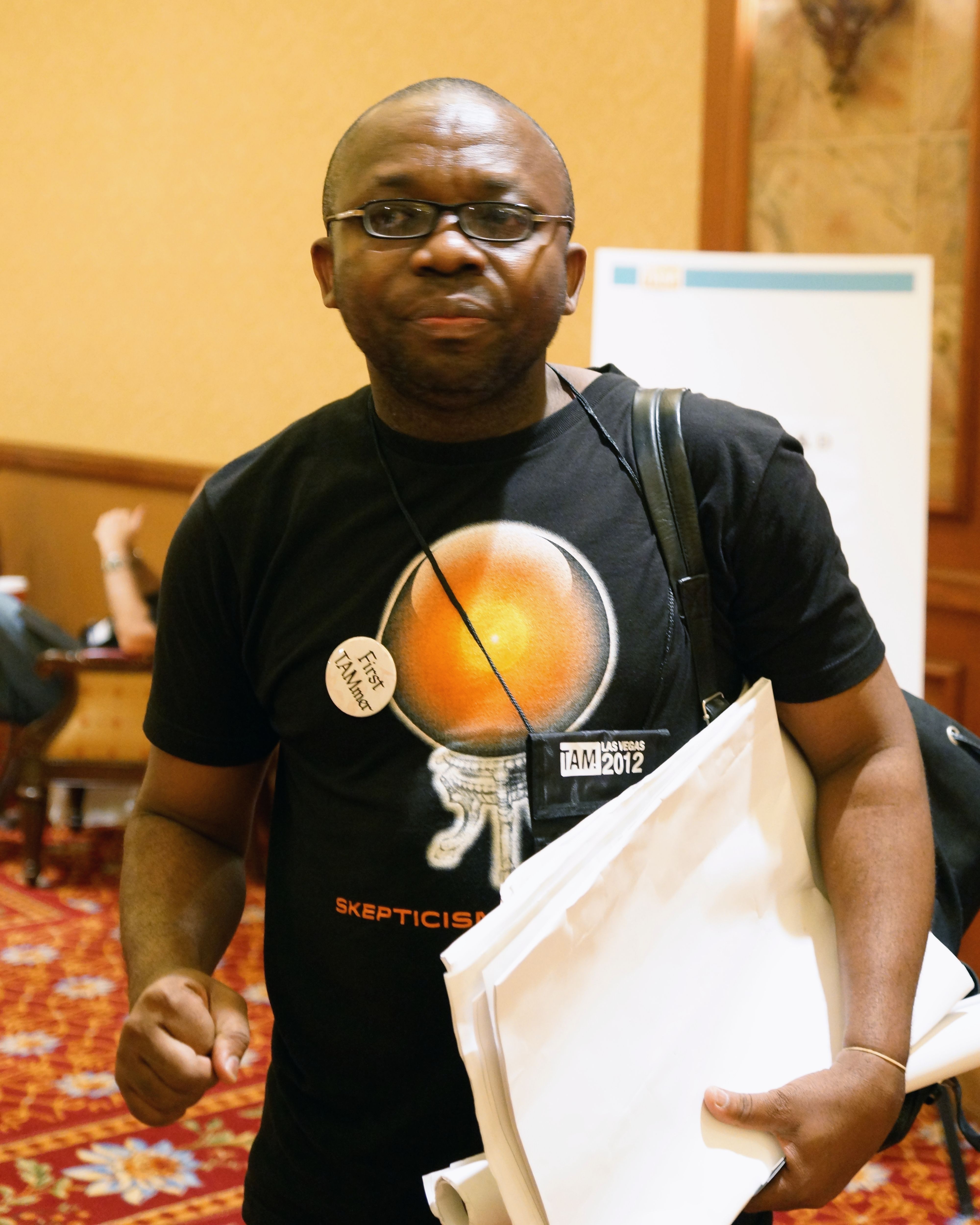A Manifesto for a Skeptical Africa (2012)
Kontekst: Most Africans cannot think freely or express their doubts openly because these religions have placed a huge price on freethinking and critical inquiry. Because these belief systems rely on paranormal claims themselves, Africans feel they cannot speak out against superstition as a whole, or they will be ostracized or even killed by religious zealots. Belief in demonic possession, faith healing, and the “restorative” power of holy water can have deadly consequences for believers and whole communities. Africans must reject superstitious indoctrination and dogmatization in public institutions. Africans need to adopt this cultural motto: Dare to think. Dare to doubt. Dare to question everything in spite of what the superstitious around you teach and preach. Africans must begin to think freely in order to ‘emancipate themselves from mental slavery’ and generate ideas that can ignite the flame of an African enlightenment.
Leo Igwe: Cytaty po angielsku
A Manifesto for a Skeptical Africa (2012)
An Interview with Dr. Leo Igwe — Founder, Nigerian Humanist Movement (2017)
An Interview with Dr. Leo Igwe — Founder, Nigerian Humanist Movement (2017)
Saving Child Witches: A Nigerian Perspective http://enblog.mukto-mona.com/2008/12/14/saving-child-witches-a-nigerian-perspective/ (December 14th, 2008), Mukto-Mona.
A Manifesto for a Skeptical Africa (2012)
An Interview with Dr. Leo Igwe — Founder, Nigerian Humanist Movement (2017)
“Human beings are social beings with or without religion.”
An Interview with Dr. Leo Igwe — Founder, Nigerian Humanist Movement (2017)
An Interview with Dr. Leo Igwe — Founder, Nigerian Humanist Movement (2017)
“History has thrust on us this critical responsibility which we must fulfill.”
A Manifesto for a Skeptical Africa (2012)
A Manifesto for a Skeptical Africa (2012)
An Interview with Dr. Leo Igwe — Founder, Nigerian Humanist Movement (2017)
An Interview with Dr. Leo Igwe — Founder, Nigerian Humanist Movement (2017)
An Interview with Dr. Leo Igwe — Founder, Nigerian Humanist Movement (2017)
Saving Child Witches: A Nigerian Perspective http://enblog.mukto-mona.com/2008/12/14/saving-child-witches-a-nigerian-perspective/ (December 14th, 2008)
An Interview with Dr. Leo Igwe — Founder, Nigerian Humanist Movement (2017)
An Interview with Dr. Leo Igwe — Founder, Nigerian Humanist Movement (2017)
An Interview with Dr. Leo Igwe — Founder, Nigerian Humanist Movement (2017)
An Interview with Dr. Leo Igwe — Founder, Nigerian Humanist Movement (2017)
A Manifesto for a Skeptical Africa (2012)
